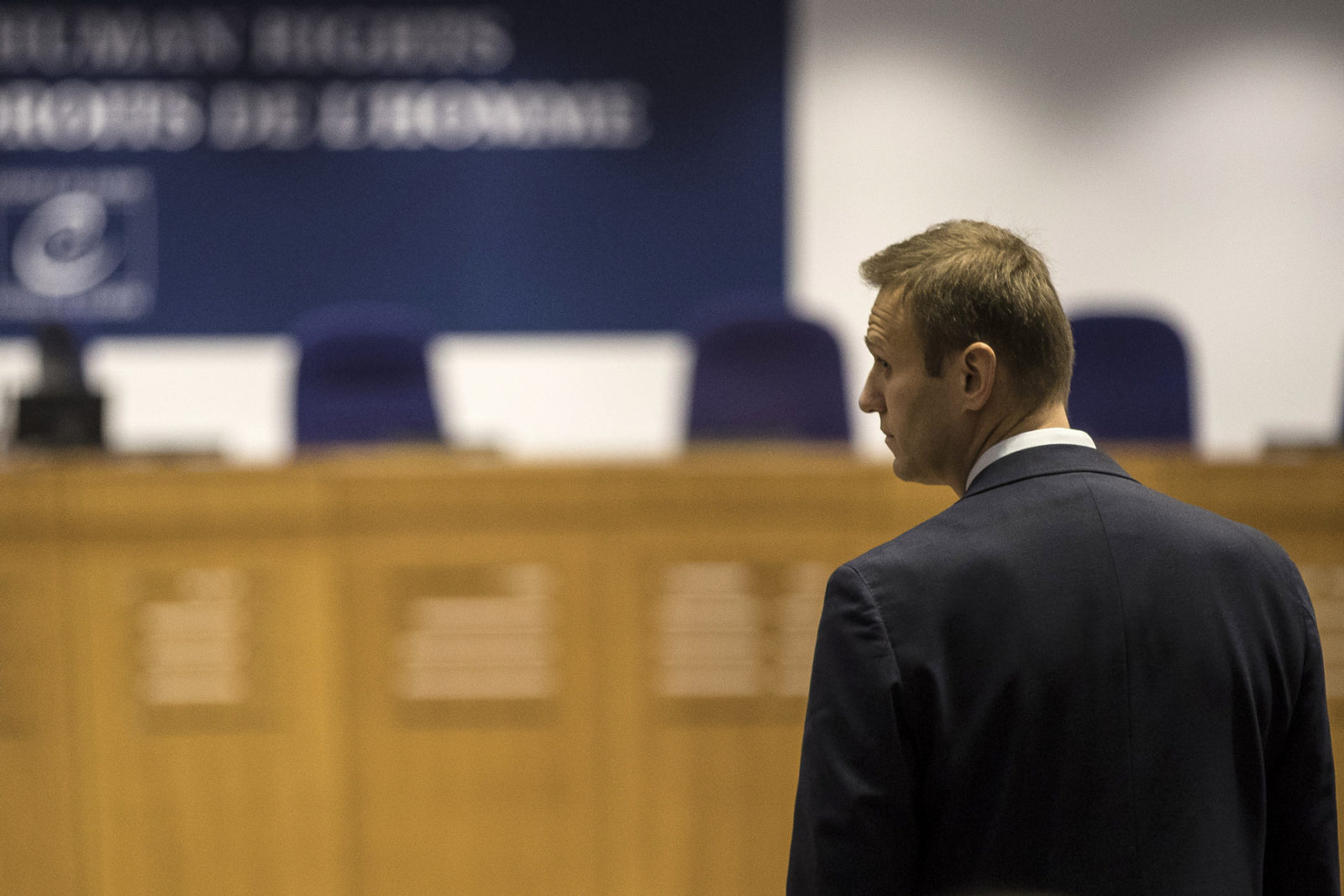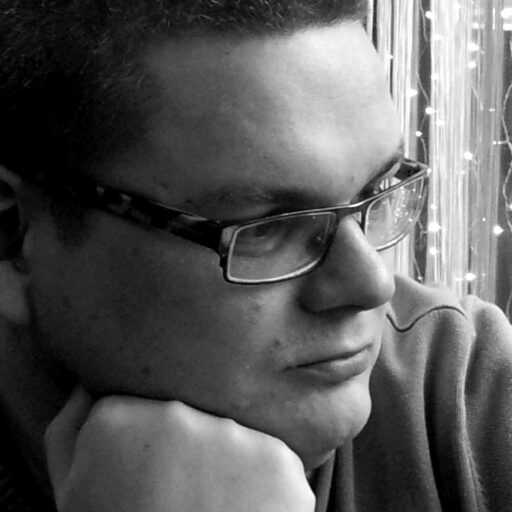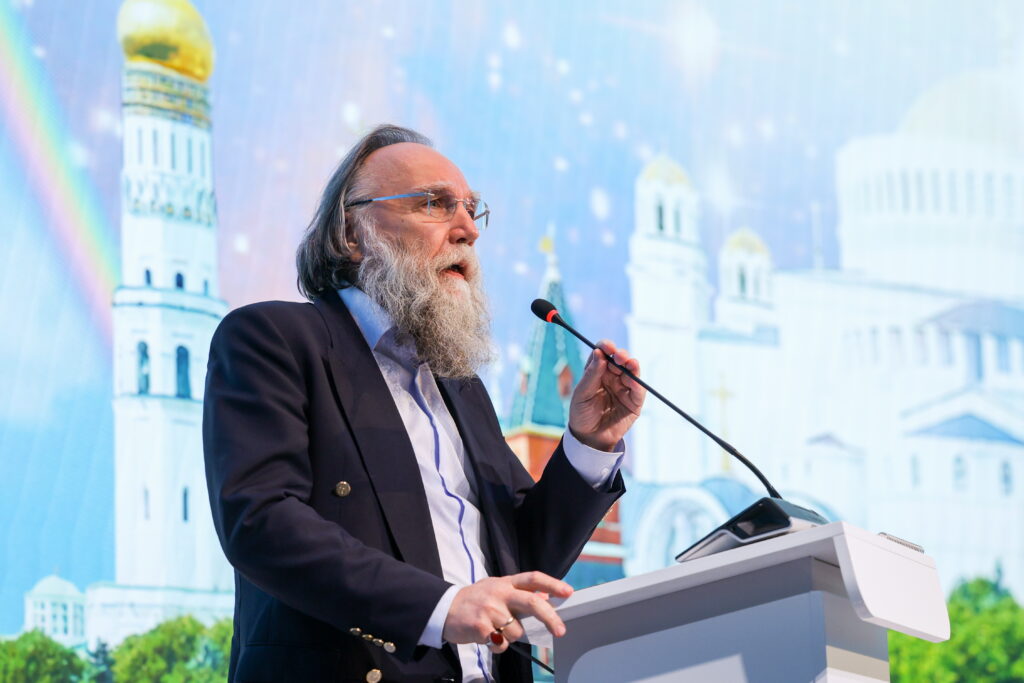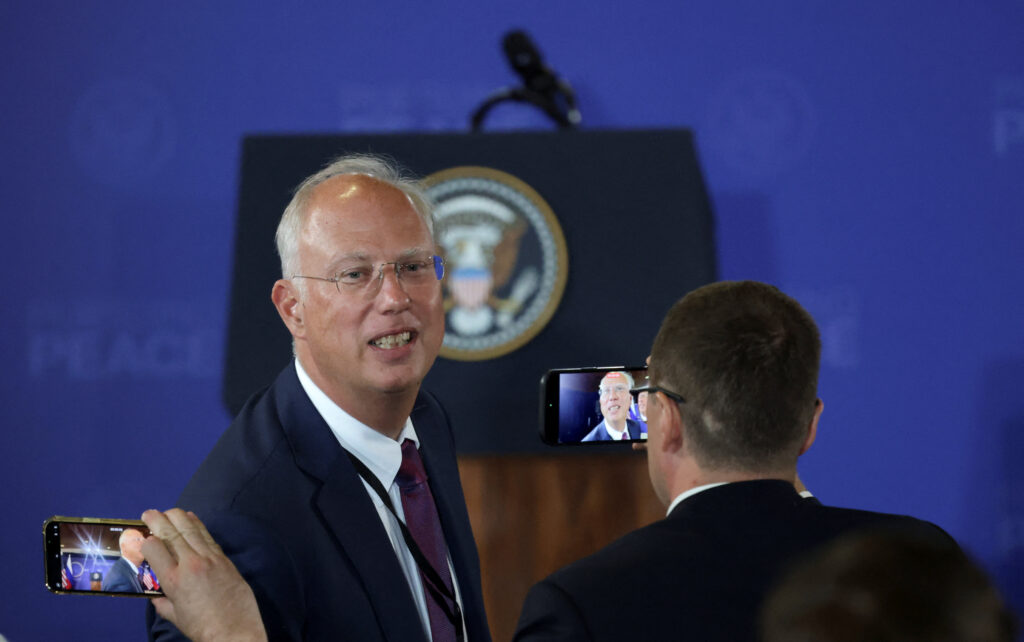Alexey Navalny has launched a new project: the “Navalny Trade Union.” He wants to help state employees, whose earnings should be tied to their region’s average salary (as determined by Russia’s state statistical agency Rosstat.) The opposition politician estimates that there are around six million such public sector employees, about four million of whom are routinely underpaid. On a purpose built website, they can now check whether the state is ripping them off, and what they can do about it (for example, arranging for legal help in this fight for decent living standards.)
Of course, the initiative benefits from the reach of Navalny’s online media network, with its audience of millions. The politician calls it a “struggle against corruption from below,” and appeals to President Vladimir Putin’s pre-electoral promises and May Decrees (in which Putin set out a policy blueprint for his next term, on issues including public sector wages.) Navalny rightly points out that Russia’s trade union movement has been almost entirely destroyed (with a few rare exceptions, the country’s trade unions are puppets which are completely controlled by the state and take the authorities’ side in labour disputes.) The trade union movement must therefore be rebuilt from scratch, and this task lies at the heart of Navalny’s new project to unite public sector employees. In avoiding party political slogans, the movement does not aim fight against the regime, but instead to demand what the authorities guarantee ordinary citizens, at least on paper.
It’s clearly struck a nerve. Presidential Press Secretary Dmitry Peskov, while admitting that he wasn’t aware of the details of Navalny’s initiative, even commented that “any public participation in monitoring [the implementation of the May Decrees] is welcome.” Not only is the Kremlin is neither criticising nor insulting Navalny, it has apparently chosen not to dismiss his criticisms and to approve of his initiative. Such a response is unprecedented in Russia today. What’s behind it?
Extreme Penury and Extreme Prosperity
To begin with, Russia is a country with staggering levels of social inequality. Behind that fact stands a tell-tale trail of corruption, leading not to the “New Russians” (the butt of many jokes from the 1990s), but to state officials, big fish in the security services, and businessmen who are close to the government. These people have long since become the masters of Russians’ lives. State officials do not shy away from conspicuous consumption. Theirs is a defiant display of luxury; there are no unpleasant consequences even after the highest profile official investigations. Corruption is a crucial and natural element of the Putin regime. The only victims of official anti-corruption campaigns are those who have fallen foul of the rules of the game — rules which are quite opaque to those not embedded into the system.
This corruption leads to tensions in Russian society. The situation was tolerated while the living standards of most Russians were on the rise, albeit gradually. There has always been extensive poverty in resource-rich Russia, and it should be recognised that the average Russian has never lived as well as during the years of the oil boom under Putin’s rule. In general, Russians are not spoilt and highly valued this slow improvement to their wellbeing. Yet the more painful the recession and price hikes, the more unpopular the measures the state is forced to take. Given the total domination of state propaganda over TV and the lack of a concrete political alternative, many people find it difficult to connect these developments with the government’s policies in recent years. In comparison, corruption is much easier to comprehend; people can easily see the cause of their woes in the over-enrichment of those in power, or those closely connected to power.
The Kremlin obviously recognises the problem. The regime fears a population whose patience is beginning to wear thin (as attested to by the steady fall in approval ratings for Putin and the ruling United Russia party.) At the latest Gaidar Forum in Moscow, ministers clamoured to talk about the dangers posed by social inequality, making promises to overcome poverty. In a May decree, Putin promised to halve the number of Russians living in poverty (from the current 13% of the population to 6%) by 2024, meaning by the end of his next presidential term. Fortunately, ministers do not dare go down the path of repression, eliminating the poor alongside poverty. Vice Prime Minister Tatyana Golikova promised that by 2020 Russia’s Ministry of Labour will have developed a new method for counting people living below the poverty line. Hers is no solution to poverty, but could at least offer some respite to the authorities.
This is why Peskov doesn’t criticise, but rather gives restrained praise to Navalny’s Trade Union.
Taking from the Rich, Giving to the Poor
Last year, specialists from the Institute of Sociology at the Russian Academy of Sciences published a study which indicated that 59% of Russians consider social justice a fundamental value on which their country’s future should be built. Unexpectedly, “human rights, democracy, and freedom of expression,” came in second place at 37%. Russians still want to live in a “great power,” but if in 2014 those words meant military might, they have come to mean economic development and an improved standard of living for ordinary citizens.
When it comes to understanding what “social justice” means for the majority of Russians, it is not academic research, but instead the heated scandals on social networks, which are the most revealing. When an explosion occurred at a residential building in the city of Magnitogorsk shortly before new year, Russians took to social networks to argue not only about what had exploded, whether the incident was a terrorist attack or the result of a gas leak, but also about how the wealthy should behave in such times of emergency. They frequently mentioned Viktor Rashnikov, the owner of the Magnitogorsk Iron and Steel Works which dominates this city in the southern Ural Mountains. They recalled the fact that Rashnikov, who is worth more than $9 billion, owns the eleventh most expensive yacht in the world. The list goes on, for Rashnikov owns a great deal of expensive things. The reason for their seeming obsession with Rashnikov was that he was nowhere to be found.
Even when photographs of the businessman in Magnitogorsk did surface online, locals remained angry that he was doing nothing to help the victims of the explosion. Even when the Magnitogorsk Iron and Steel Works eventually donated some funds to the victims, the anger did not abate. Once again, locals took to social networks to complain about the presence of several dollar millionaires on Metallurg Magnitogorsk, the city’s ice hockey team. As it happens, Metallurg is also owned by the very same Viktor Rashnikov.
Rashnikov wasn’t the only wealthy person to attract their ire; another was senator Andrei Klishas. Although Klishas has no connection to the town, shortly before the tragedy in Magnitogorsk he became (in)famous with a little help from Alexey Navalny. Navalny’s Anti-Corruption Foundation discovered that Klishas has an extensive collection of luxury watches — and one which the member of the Federation Council was not shy of showing off to the public. Klishas made no attempt to explain himself, and simply retorted that he actually has more luxury watches than shown in the video exposé. He has yet to respond to those who demanded that he help the victims of the Magnitogorsk explosion.
An important nuance here is that it wasn’t just ardent fighters for justice who joined this online hunt for the rich. Bloggers and owners of popular channels on Telegram, who have been known to follow orders from the authorities, took part too. Of course, this doesn’t mean that the entire escapade was ordered from on high. But it does mean, at the very least, that people sensed the moods of their bosses and superiors and thought “now this is possible.” Otherwise, they would never have risked their livelihoods by speaking out in public so forcefully. People now assume that the state is also ready to play this game, thereby shifting responsibility for satisfying the paternalistic demands of the majority onto a few very wealthy individuals.
The Corruption Conundrum
Russia does not like its rich. The “Man with a Ruble” (the title of Mikhail Khodorkovsky’s manifesto on business — ed.) is no hero here, and that’s putting it mildly. Any explosion, upheaval, or conflict inevitably prompts sermons about the outrageous behaviour of the country’s wealthiest. I call these sermons, rather than arguments or discussions, as everyone has agreed before a word is spoken. These sermons rage against the indecency of flashing around expensive watches, earrings, or handbags in public. They rage against the fact that officials riding the state’s gravy train have limousines and yachts, in a country where many earn below a living wage. At the very bottom of society come the “container formations,” a phrase taken from one of Putin’s yearly Direct Line television call-in shows (the term refers to a temporary settlement built of caravans and container homes — ed.) On one occasion, residents of one of these settlements were not able to directly tell the president about the conditions in which they were forced to live.
So it’s difficult to argue against this hatred. While public spirited anti-corruption investigators regularly share their findings about the staggering scale of this theft, you don’t need an investigation to figure out that a district prosecutor cannot live in a palace. He cannot, yet he does. State officials and those close to them don’t even bother to hide the endless villas, cars, fancy clothes, and dazzling jewels. These luxuries were not earnt through honest labour; they were simply stolen.
The state is in a hopeless situation. For the state, corruption is a disease, which eats away at it from within. But corruption is nevertheless an effective mechanism of control. It can be used as a carrot to attract valuable people to your side, and a stick to beat them with should they step out of line. Making a show of whipping one corrupt official into shape does nothing to reassure the average Russian that things can improve; in fact, these performances do the exact opposite.
When it turns out that Governor X, rather than those who crossed him, has a magnificent collection of diamonds, a storage vault full of cash, and a million dollar pen, the average Russian does not rejoice. Instead, he’s enraged. Because he knows that Governor X, who has now been arrested, is really no different from the prosperous Governor Y. Governor X is now a thief, while Governor Y, who has never been investigated, can walk away as an honest man.
In this, the ordinary citizen is usually right.
As Peskov put it in an interview earlier this month: “Without a doubt, our citizens are absolutely intolerant towards snobbery and excessive luxury, and rightly so. But most of those in the civil service are working selflessly for the good of the country; they have nothing to do with any kind of corruption. But the attitude towards them in society is now such that I sometimes feel ashamed to say that I am a government official. The hatred is simply overflowing.”
What question might arise when reading such moaning from this upstanding individual? Probably just one: While giving this tirade, did Mr. Peskov glance at his own watch, worth 600,000 Euros?
Danger, Mines!
While government ministers are eager to fight poverty, society demands the complete dispossession of the rich. That how you say “social justice” in Russian. The authorities have set many traps for whatever Russia emerges after the Putin regime, and this appears to be one of the most dangerous ones. Essentially the state, while preaching imperial glories and war, overlooked a possible turn to the left. Now it is trying to salvage the situation, by scrupulously punishing these “honest officials” whom it once permitted to say that “the state owes nothing” to its citizens, and to promise new methods of counting the poor.
But this is wide of the mark. Russian citizens today do not need a helping hand from their neighbours; they’re baying for blood from the bosses who have robbed them blind. And it would always come to mean their bosses, because “rich” and “boss” have long since become synonyms. That is one demand that the state can never meet, for the state is, after all, a conglomerate of various thieving bosses. It has even become difficult to redirect the torrent of public rage. Bear in mind that even the Communist Party, the officially anointed hard left option during last year’s elections, put forward the millionaire Pavel Grudinin as its presidential candidate. The well-to-do local businessmen saw some success, particularly in Russia’s maritime Far Eastern provinces.
This is not a conversation about Russia’s present, but about its future (and there must surely be a future for Russia after Putin.) Remember that Russians named “freedom” as the second highest priority for the country’s future. However, freedom cannot be achieved without respect for other people’s property, and forcing yourself to respect what is clearly stolen is a fruitless task.
The sermons doing the rounds on social networks point to a deeper malaise. A society which is so paternalistically-minded has no space for the idea that wealth does not need reflect high moral virtues. Such a society is uncomfortable with the idea that a rich man has the right to donate his money to charity, or to spend it on luxury watches. He might even choose to burn it on the stove, after reading Dostoyevsky. Generally speaking, that’s also freedom.
For ordinary Russians, there’s not much difference. In their conspicuous consumption, the country’s rich might as well be burning cash in their stoves. But nowadays, more and more people can smell the smoke. The wealthy spendthrifts have nothing to say in their defence, for they know their own position all too well. Meanwhile, Russian society is inclined to continue making even more left-wing demands of the rich.
That is the bomb laid beneath the foundations of Russia’s future. And it’s unclear whether the sappers will appear who can defuse it before it goes off, in a blast of blood and confusion.










